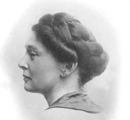English, Department of

University of Nebraska Studies in Language, Literature, and Criticism
Date of this Version
January 1935
Abstract
The purpose of the following study is to set forth, as far as a brief treatment will permit, Ralph Waldo Emerson's manner of using the Bible in his writing. That he had a wide knowledge of the book is proved by his numerous allusions to its characters and events, its rites and symbols, its philosophy and laws. Moreover, his method of supporting his contentions by Scripture, the pertinence of his many paraphrases of familiar Biblical allusions, and the ease with which he quotes and applies Scriptural passages clearly demonstrate his possession of remarkable Scriptural knowledge. He quoted the Bible as unconsciously as he breathed the air about him. Its philosophy became so embedded in his thought and its phraseology so familiar to him that he talked in Biblical phrases and thought in Scriptural philosophy. In his essay "The Poet" printed in Essays, Second Series, he called the mind a Noah's Ark. In "Poetry and Imagination" in Letters and Social Aims, he described a person's vocabulary as a many-colored coat. In his address "The Fugitive Slave Law" published in Miscellanies, he declared that the materialism which culminated in the Fugitive Slave Law was a behemoth. In "Nature" in Nature Addresses and Lectures, he said that "Nature is thoroughly mediate. It is made to serve. It receives the dominion of men as meekly as the ass on which the Saviour rode." Such allusions are possible only to the person whose mind is so thoroughly saturated in the Scripture that it forms a background which supports his philosophy and illuminates his thought.


Comments
Published as University of Nebraska Studies in Language, Literature, and Criticism, Number 14. Lincoln, Nebraska, 1935